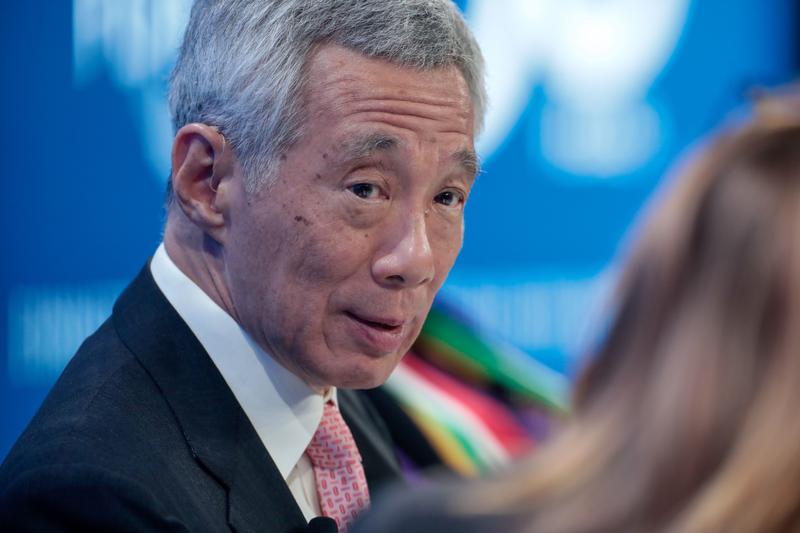 Singapore Prime Minister Lee Hsien Loong speaks during a panel session on day two of the World Economic Forum (WEF) in Davos, Switzerland, Jan 22, 2020. (PHOTO / BLOOMBERG)
Singapore Prime Minister Lee Hsien Loong speaks during a panel session on day two of the World Economic Forum (WEF) in Davos, Switzerland, Jan 22, 2020. (PHOTO / BLOOMBERG)
Singapore will hold an election on July 10 as Prime Minister Lee Hsien Loong seeks a renewed mandate to govern amid the coronavirus pandemic that has pummeled the country’s economy.
Lee said Tuesday that he advised President Halimah Yacob to dissolve parliament and issue the writ of election, setting the stage for the upcoming polls. Candidate nominations will take place on June 30, the prime minister’s office said.
“We need a capable government, with the strong backing of the people, to do all that needs to be done on your behalf, and see us through these tumultuous times,” Lee said. “An election now - when things are relatively stable - will clear the decks, and give the new government a fresh five-year mandate.”
The government’s approach to tackling COVID-19 and the economic fallout is set to become a defining issue in the vote. Singapore, which has more than 42,000 confirmed cases of the virus, last week further relaxed restrictive measures and allowed most activities to resume, with authorities assessing the infection situation to be under control.
We need a capable government, with the strong backing of the people, to do all that needs to be done on your behalf, and see us through these tumultuous times. An election now - when things are relatively stable - will clear the decks, and give the new government a fresh five-year mandate.
Lee Hsien Loong, Singapore prime minister
ALSO READ: Singapore's long lockdown challenges leaders facing election
In his speech, Lee spoke about the challenges facing the country, from business closures and rising unemployment within the city-state to geopolitical uncertainties ranging from US-China tensions.
“Singapore has not yet felt the full economic fallout from COVID-19, but it is coming,” Lee said. “Despite all the measures we have taken, there will be more business closures, and more retrenchments in the coming months. Unemployment will go up.”
The virus is expected to have a deep impact on the city-state’s trade-reliant economy. The government is now forecasting a full-year economic contraction of up to 7 percent, which would mark the worst downturn for the country since its independence.
In an effort to help troubled companies and citizens, Singapore has announced four separate stimulus packages, taking the nation’s total coronavirus relief to S$92.9 billion (US$66 billion), or 19.2 percent of gross domestic product. The measures are being funded in part by some S$52 billion being drawn this financial year from the nation’s reserves. Support measures have included individual cash handouts, wage subsidies and rental rebates.
Virus approach
The election announcement comes as the country enters the second phase of a three-stage easing of lockdown measures following some two months where schools and most work places were shut. Shops have reopened and dine-in at restaurants can resume, subject to safe distancing principles such as not having more than five people in a group and individuals maintaining a distance of at least one meter at all times.
READ MORE: Singapore election nears with release of boundaries report
The ruling People’s Action Party government initially won praise from public health experts for its response to the outbreak, when it sought to apply a gradual suite of safety measures to contain the disease while trying to keep the economy moving. But the city-state - like many countries - soon saw cases spike, particularly from an outbreak among the more than 300,000 migrant workers living in tightly-spaced dormitories.
While Singapore has one of the highest recorded number of virus infections in Asia, just under 0.5 percent of total cases resulted in hospitalization. There’s currently only one person in intensive care and 26 people have died, as of Monday.


